What Does Pre-Workout Feel Like?
Author:
Unlock your full potential by engaging with our experts and community! Have questions about your fitness journey or looking for expert advice on weightlifting techniques? Don’t hesitate — leave a comment below and David Sasha Schulz will provide a personalized answer and insights to help you reach your goals.
Torokhtiy is reader-supported. Some links are affiliate links, and we may earn a commission at no extra cost to you. See our disclosure page for details.
This is a question many gym-goers ask themselves before trying it out. Taking a pre-workout for the first time can be an exciting and nerve-wracking experience. Pre-workout supplements are popular among fitness enthusiasts, as they are believed to enhance performance and energy levels during workouts, but how does pre workout feel, and does it make you tired?
In this piece, I’ll clearly explain the pre workout feeling so you know what to expect.
Pre-workout intake makes you feel more energetic, attentive, alert, and focused on the task. Your skin might feel itchy and tingling if it has niacin and beta-alanine. However, only a few ingredients in a pre-workout supplement are linked to these feelings.
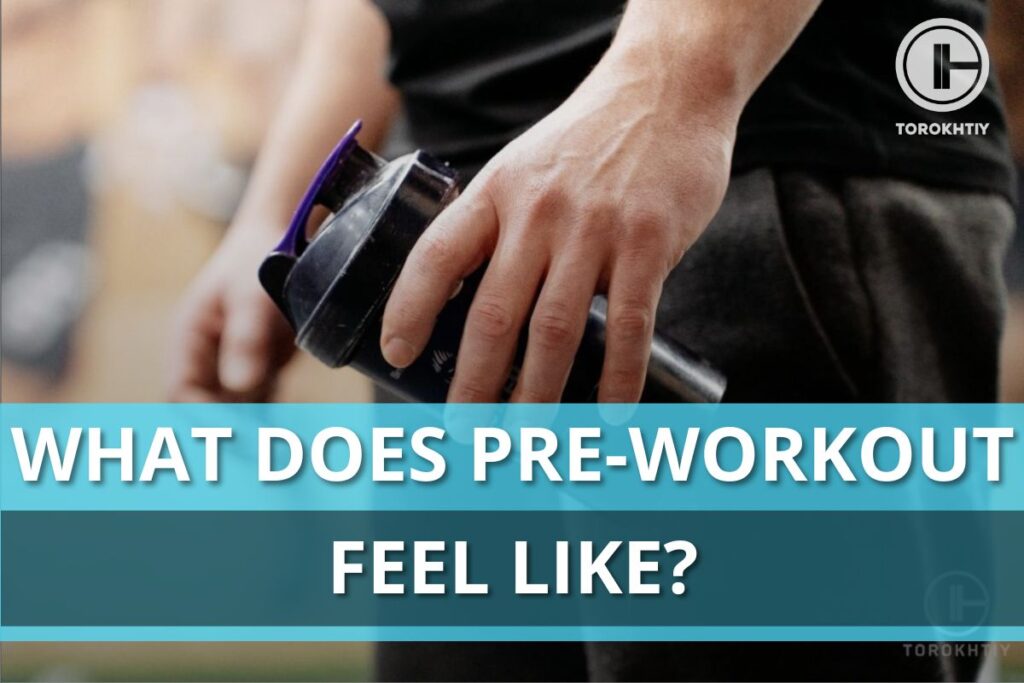
What Does Pre-Workout Feel Like? 7 Common Feelings You’ll Notice
Pre-workouts are dietary supplements that fitness junkies and athletes take to improve their training performance. The most common pre-workout ingredients are Taurine, Caffeine, Niacin, Beta-Alanine, and Tyrosine.
Below are the seven most common pre workout feelings:
1. Itchy
Vitamin B3, often called Niacin, is a common ingredient in pre-workouts. This vitamin helps in boosting athletic performance by releasing energy from fat and carbs. The energy released serves as fuel for muscles.
Research proves that it also makes the skin itchy. Itchiness can be quite uncomfortable, especially when you’re lifting weights.
2. Jittery
Some pre-workout formulas contain Caffeine as a mental and physical stimulant. Before taking such supplements, you’ll need to consider how much caffeine is contained in each serving.
Based on research, 200 mg is the recommended limit per dose. But, some pre-workouts contain as much as 300 mg. So, if you drink a cup of coffee on your way to the gym, then it’s very easy for you to get jittery.
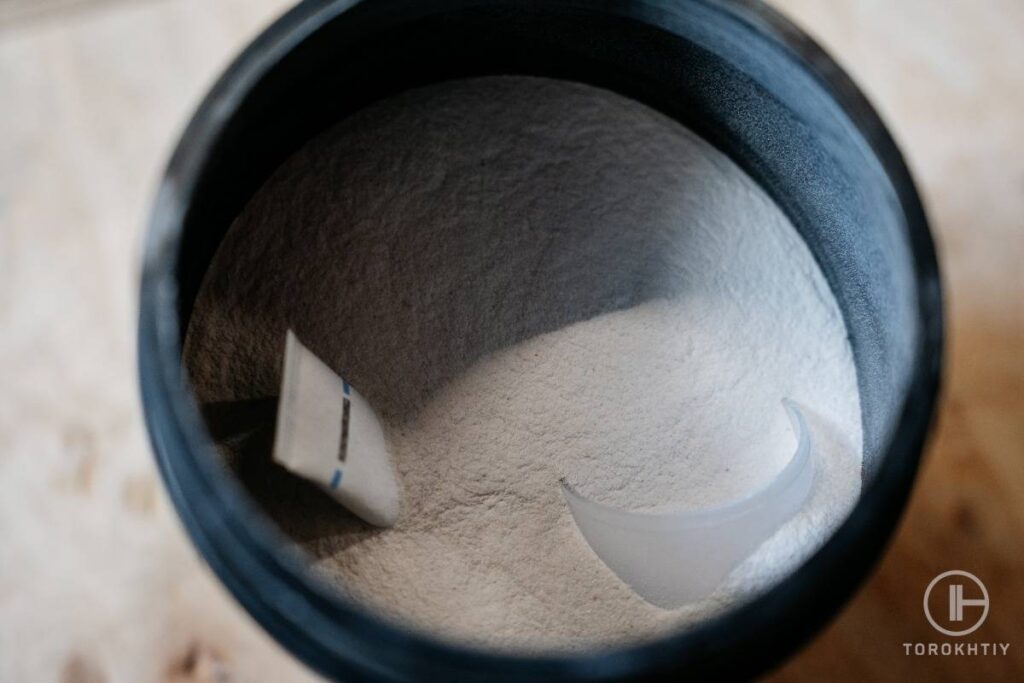
Although caffeine helps improve motivation and focus, avoid excess intake, so you don’t get anxious at the gym.
3. Pumping Muscles
Citrulline (a pre-workout ingredient) helps boost nitric oxide levels. This supplement keeps the blood vessels relaxed, allowing blood to flow easily.
When the blood flow to your muscles increases, they swell up.
It can also boost your energy levels, as the increased blood flow to muscles also means quicker delivery of nutrients and energy.
4. Tingling Sensation
This sensation is caused by an amino acid called Beta-alanine. Beta alanine is a buffer which helps limit the accumulation of lactic acid in the muscles and blood. It causes a tingling sensation in your skin for less than an hour.
Beta alanine is produced naturally in the body, but at much lower levels than needed to optimize the performance enhancing effects. The higher dosage is what produces the tingling sensations.

5. Headaches
Pre-workout supplements may cause headaches due to the high caffeine content.
Have you ever had more than 3 cups of coffee at once? I bet you know how bad the headache can get if you have. Imagine if you’re taking pre workout for the first time and it contains a very large dose of caffeine; the headache could be similarly intense.
To be on the safe side, if you’re sensitive to caffeine, you may consider a pre-workout supplement with less or no caffeine.
6. Water Retention
Creatine, a common ingredient in pre-workout formulas, increases exercise performance and lean body mass gains.
Although this ingredient has mild side effects, it causes water retention, weight gain, and even bloating.
7. Digestive Upset
Several pre-workout ingredients are linked to digestive upset. Some examples are; caffeine, creatine, magnesium citrate, sodium bicarbonate, etc.
Sodium bicarbonate may cause problems when consumed at 91 mg to 227 mg per pound of body which can result in diarrhea. Large doses of minerals such as magnesium may cause diarrhea also.
Tips From the Champ
It’s sometimes difficult to determine which ingredient is causing digestive issues, so try out different formulas until you find the one your body can tolerate.
Olympic Weightlifting Champion
How Can You Limit Negative Feelings?
Taking pre-workout is akin to causing unrest in your body system. While it has numerous advantages, it has disadvantages, just like any other product.
Interestingly, through the following ways, you can reduce the negative pre-workout feelings:
1. Reduce Your Doses
If the negative feelings persist, reduce your dosages, at least for one or two weeks. You can try to gradually increase your dose again after a break.
If you need clarification on the proper dosage, contact a professional.
2. Eliminate Caffeine
You may consider eliminating caffeine from your supplements completely if you are very sensitive and respond poorly. Just be aware that caffeine is likely the most effective ingredient in a pre workout supplement, and they may not be very useful without it if the dose of other ingredients is inadequate.
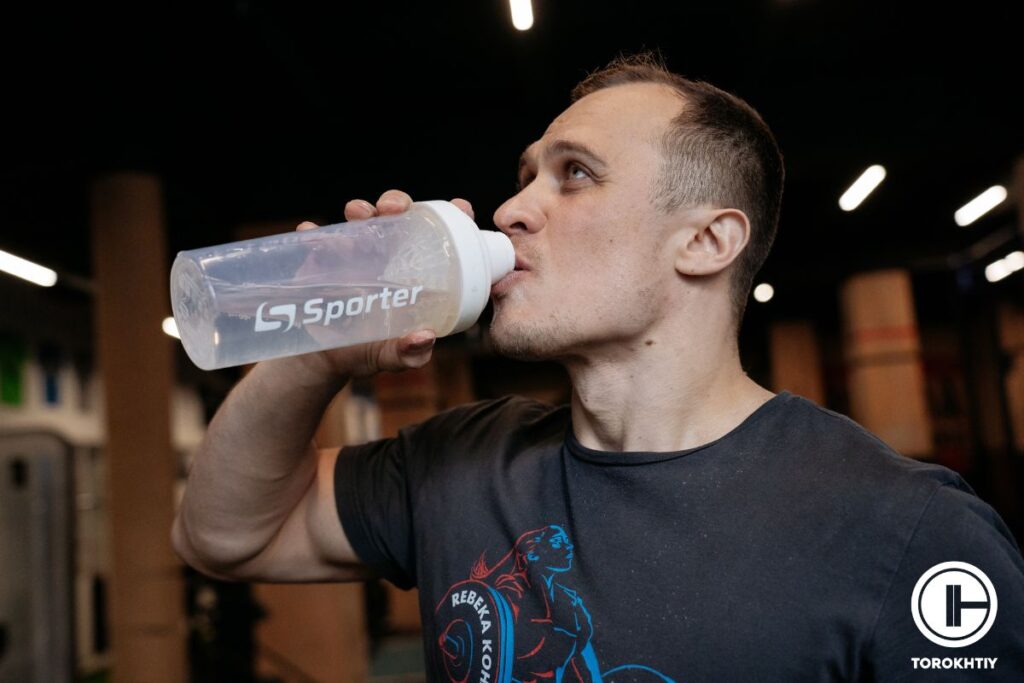
3. Focus on Your Training
Undoubtedly, some pre-workout feelings can be quite uncomfortable. Do your best to focus on your workout, and those feelings can even become useful.
All you need to do is simply focus on the weight lifting and other exercises through those tingles.
Choose the Best Pre Workout Supplement.
I recommend Outwork Nutrition pre-workout. It has clinically effective doses of caffeine, beta alanine, citrulline, and rhodiola rosea. It will increase your focus and help you train harder for longer.
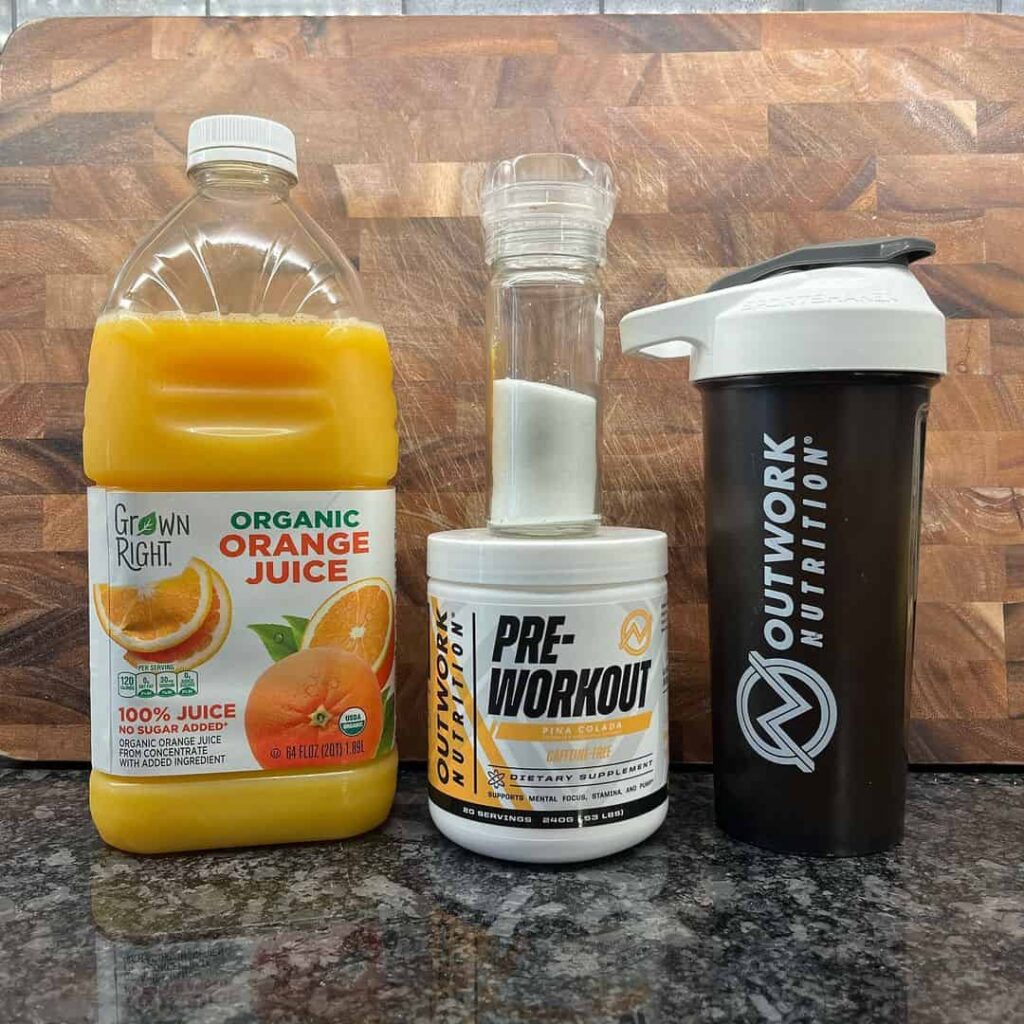
FAQ
Does Pre Workout Make You Tired?
No, it does not make you tired; it makes you feel the opposite; energetic and alert.
If you’ve also been asking, ‘why does pre workout make you crash?’ You may feel a crash a few hours after taking a large dose of caffeine. This is most likely just noticing the contrast between enhanced stimulation and then returning to normal levels of alertness. It may also be from the hard workout you did after taking the pre-workout supplement. It is normal to feel tired after a hard workout!
Do You Feel Pre-Workout Right Away?
If taken on an empty stomach, many ingredients will take action within 30 minutes.
Does Pre-workout Give You a Buzz?
Pre workout buzz is linked to the amount of caffeine in the supplement. Most pre-workouts are between 100 mg to 300 mg per serving.
So, you’ll definitely feel a buzz if the caffeine exceeds your tolerance.
Conclusion
Taking pre-workout can feel great and enhance your performance significantly if taken at the proper dose. Too much of it can make you feel overwhelmed and eventually crash.
There are numerous pre-workout supplements to choose from. If you realize they’re too strong for you, you can settle for a non-stimulant pre-workout or buy some of the ingredients individually.
Do you still need clarification about which supplement is best for you? Are you still wondering if you should take pre-workout? Feel free to share your comment and questions in the comment section.
Also read:
- Can You Overdose on Pre Workout
- Pre Workout for Teenagers
- Stim vs Non Stim Pre Workout
- Does Pre Workout Have Caffeine
- How Long Does Pre Workout Stay In Your System
- Are There Natural Pre Workout Supplements
- Does Pre Workout Help Build Muscle
- Nitric Oxide Supplements Guide
- What Is Non Stim Pre Workout
- Does Pre Workout Help You Focus
References:
- Common Ingredient Profiles of Multi-Ingredient Pre-Workout Supplements // NCBI: https://www.ncbi.nlm.nih.gov/pmc/articles/PMC6413194/
- Effects of Citrulline Supplementation on Exercise Performance in Humans: A Review of the Current Literature // NCBI: https://pubmed.ncbi.nlm.nih.gov/31977835/
- What Is Caffeine, and Is It Good or Bad for Health? // HealthLine: https://www.healthline.com/nutrition/what-is-caffeine
- Photos made by Torokhtiy Media Team.
Why Trust Us?
With over 20 years in Olympic weightlifting, strength training, nutrition coaching, and general fitness our team does its best to provide the audience with ultimate support and meet the needs and requirements of advanced athletes and professional lifters, as well as people who strive to open new opportunities and develop their physical capabilities with us.
By trusting the recommendations of our certified experts in coaching, nutrition, and sports training programming, as well as scientific consultants, and physiotherapists, we provide you with thorough, well-considered, and scientifically proven content. All the information given in the articles concerning workout programming, separate exercises, and athletic performance, in general, is based on verified data.
The product testing process is described in more detail here.
Author: David Sasha Schulz
Doctor of Chiropractic, BSc Human Biology, CSCS
Strength coach (CSCS) – 10 years
Sasha is a Chiropractor and Kinesiologist practicing in Kelowna, BC, Canada. He has been practicing Chiropractic since 2019, integrating manual therapy, strength training and programming principles, and nutritional strategies to get his patients optimal results. He currently scratches the competitive itch in fitness, and the occasional endurance race, and plays golf and snowboards for fun. He has an interest in all strength and fitness-related sports.



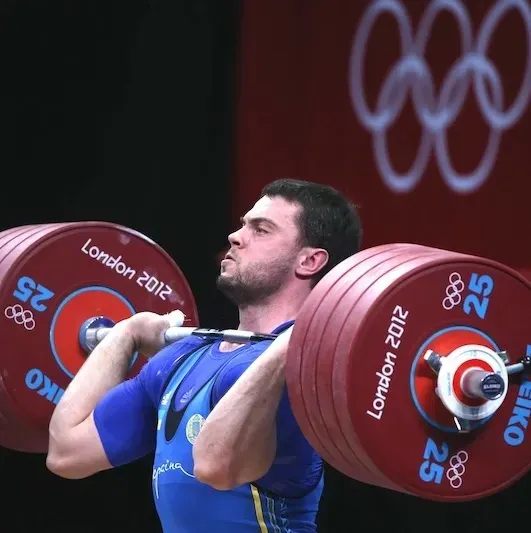
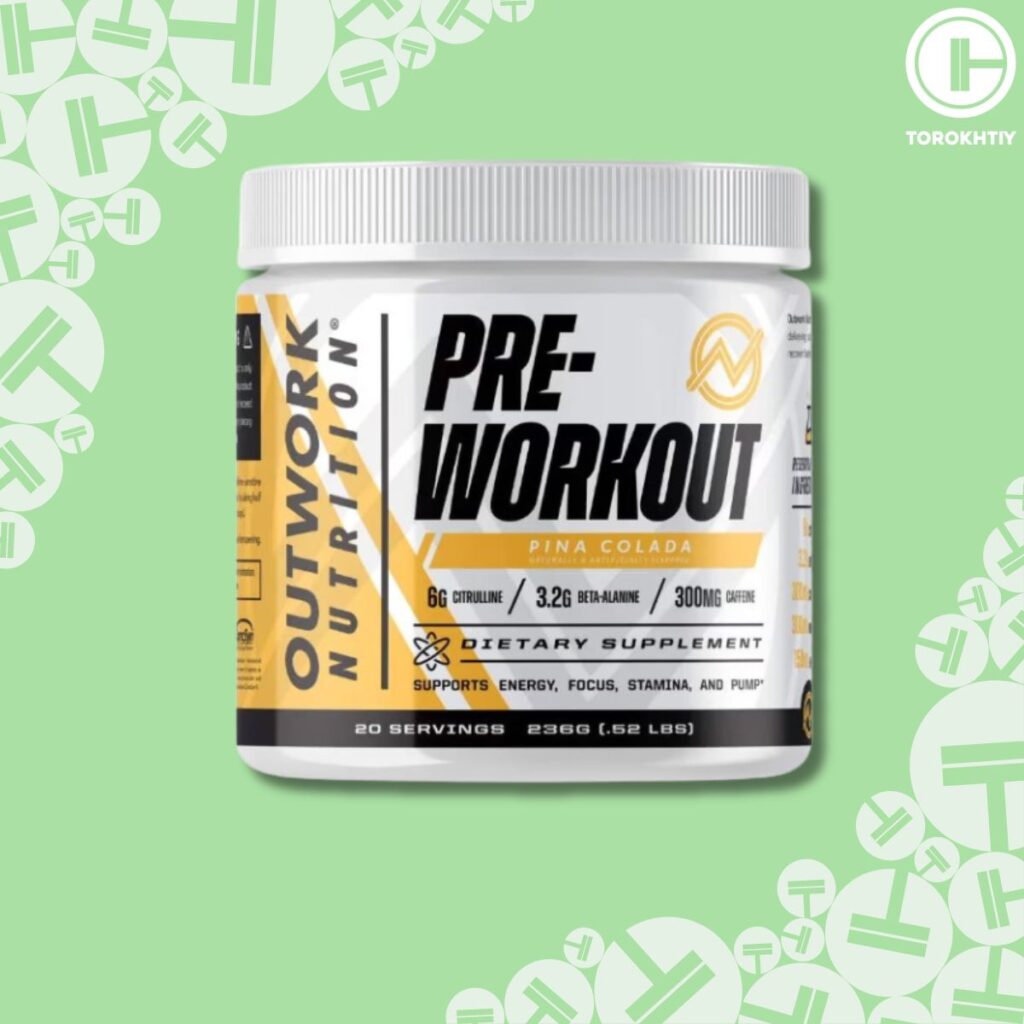
Still have questions after reading our article? Unlock your full potential by engaging with our experts and community! Don’t hesitate — leave a comment below and David Sasha Schulz will provide a personalized answer and insights to help you reach your goals.